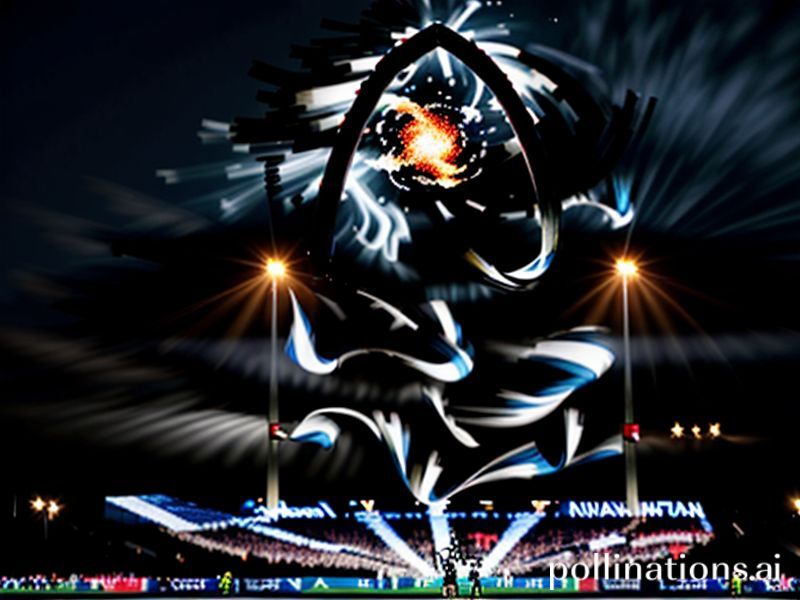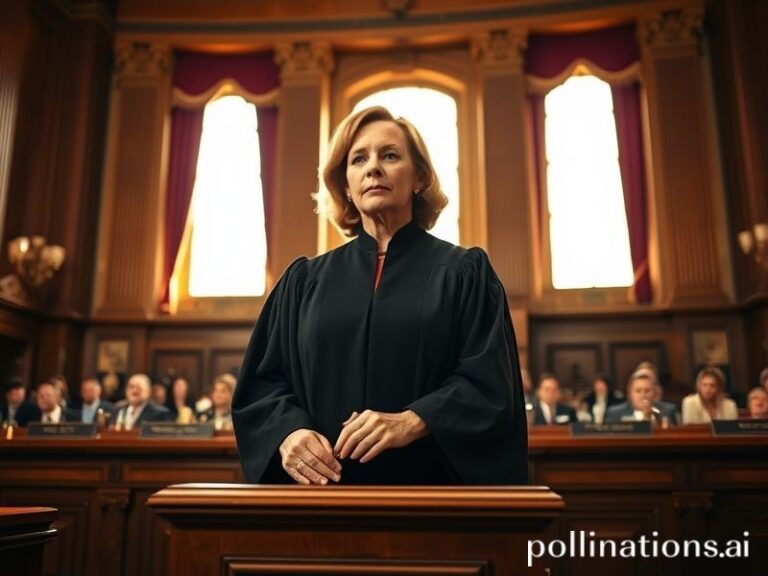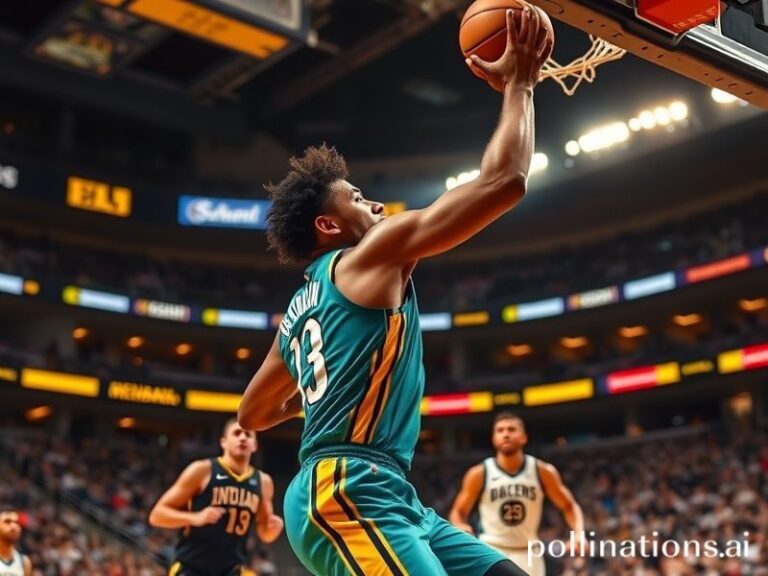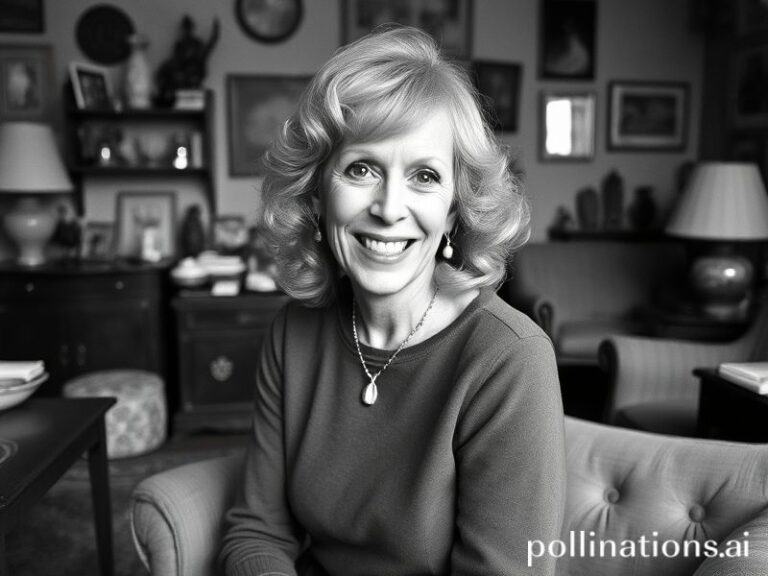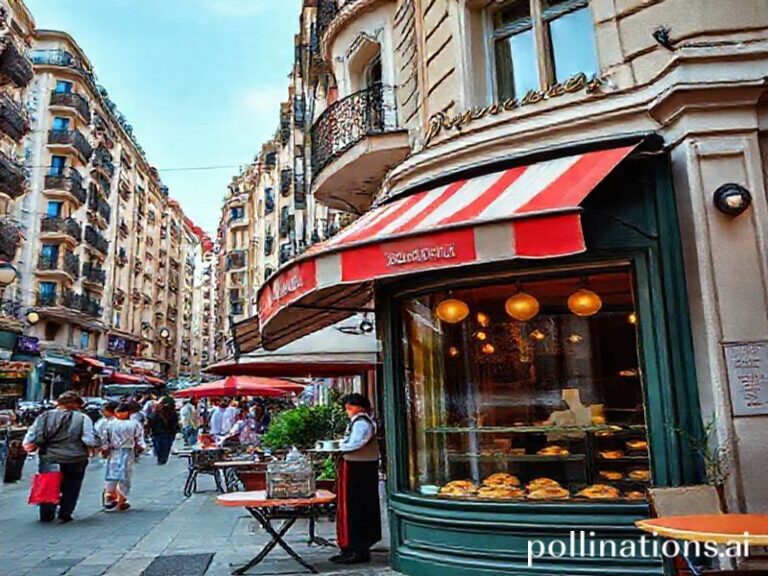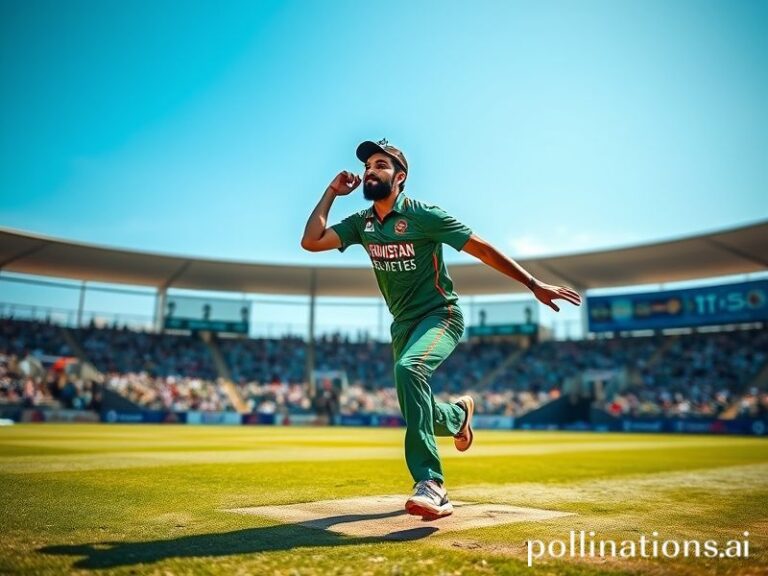From Fairs Cup to Financial Fair Play: Newcastle vs Barcelona’s 27-Year Dance of Delusion
Newcastle United vs. Barcelona: A Timeline of Colliding Delusions
By Our Man at the End of the World (and the Duty-Free Bar)
1997 – The Fairs Cup Final, First Leg, St James’ Park
The last time Europe smiled at Newcastle without simultaneously checking its wallet. A 3-2 win for the Toon, fueled by pre-Brexit pints and the quaint notion that English clubs would always be competitive. Barcelona, still high on the idea that Catalonia might one day be a country, concedes two late goals and files the memory under “miscellaneous regional uprisings.” The global takeaway: the English can still export something other than tabloid journalism.
2003 – Champions League Group Stage
Sir Bobby Robson, the only man who could make losing 2-0 at the Camp Nou look statesmanlike, reminds both sets of fans that football is “only a game.” This is immediately disproved by the Dow Jones, which dips on rumors that Alan Shearer might retire. Somewhere in the Middle East, an oil sheikh makes a note to buy a club that actually wins things.
2013 – Friendly in Gelsenkirchen, Schalke’s Cup
Because nothing says “pre-season relevance” like two storied clubs meeting on neutral turf that smells faintly of Ruhr coal. Barcelona fields a midfield of toddlers; Newcastle fields Shola Ameobi, who scientists confirm is the same age as coal. The 1-1 draw is watched by 14 insomniacs on a Malaysian pirate stream, proving that late capitalism can monetize literally anything.
2020 – Pandemic Twitter War
With stadiums shut, fans resort to the only remaining battleground: quote-tweets. Barça supporters mock Newcastle’s takeover limbo; Geordies reply with screenshots of Messi’s tax returns. The UN considers stepping in, then remembers it can’t even sort out Yemen and logs off. Humanity’s lowest moment until someone invents NFT season tickets.
2021 – The Saudi Takeover Goes Through
Suddenly Newcastle is the richest club on paper, which is precisely where that wealth will stay until lawyers finish their four-year coffee break. Barcelona, meanwhile, discovers its own bank account is as empty as the Camp Nou during lockdown. Global implication: if you owe the bank a billion, it’s the bank’s problem; if you owe La Liga a billion, it’s everyone’s Netflix subscription.
2022 – Europa League Draw Roulette
The balls tumble, UEFA executives sweat, and fate pairs the nouveau-riche Magpies with the nouveau-poor Catalans. Twitter’s servers whimper. In Washington, senators schedule hearings on “sportswashing,” then quietly accept campaign donations from both consortiums. Somewhere in the metaverse, a bored teenager mints a commemorative GIF of the moment the draw was made; it sells for the price of a Tyneside flat.
2023 – First Leg, St James’ Park, October 4
Kickoff delayed while officials confiscate 47 inflatable Saudi passports and one confused pelican that wandered off a climate-protest float. Newcastle, high on adrenaline and sports-science caffeine, press like Brexit negotiators chasing a deadline. Barcelona, still clinging to positional play like a philosophy undergrad to unread Foucault, concede after 21 seconds. The world’s stock markets do nothing, proving once and for all that football is not the opium of the people—crypto is.
2023 – Second Leg, Camp Nou, October 24
Xavi fields a back line whose combined age predates the Euro. Newcastle, now managed by a coach who speaks fluent PowerPoint, scores twice on the counter. The global audience—roughly 184 million minus the Chinese feed that was accidentally replaced by a looped rerun of Happy Lamb—watches Barça exit the group stage like a once-wealthy uncle leaving the casino in someone else’s shoes. Catalan commentators invoke the Spanish Civil War; Geordie commentators invoke a kebab.
2024 – Aftermath & Existential Fallout
Barcelona registers Gavi, Pedri, and a half-eaten paella as economic assets. Newcastle announces plans to expand the stadium, the city, and, if possible, the concept of Tuesday. CNN runs a segment titled “What This Means for the Global South,” which turns out to be very little unless you’re a sports-drink bottler in Paraguay. The rest of us go back to doom-scrolling about glaciers, comforted by the knowledge that at least one of these clubs will definitely win something before the Arctic shelf collapses.
Conclusion
Between 1997 and now, the world has learned two immutable truths: empires rise, empires fall, but football clubs in existential crisis will always find new money from somewhere even shadier than the last lot. And if you ever want to understand geopolitics, skip the Security Council—just follow the timeline of Newcastle vs. Barcelona, where every goal is a currency fluctuation and every VAR check a minor act of war. Sleep well.

